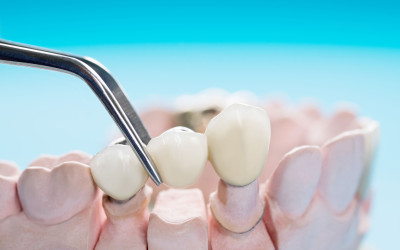The Intertwining Story of Diabetes and Dental Health

The Intertwining Story of Diabetes and Dental Health
- 20 August 2023
- 3172 views
Managing Diabetes and Dental Health: Expert Insights by Dentevim. Discover ways to maintain a healthier smile and overall well-being.
This content is for informational purposes only and does not replace medical advice, diagnosis, or treatment. Please consult a healthcare professional for any health concerns.
Table of Contents
In the realm of healthcare, diabetes stands as a widespread chronic metabolic disease that significantly affects blood sugar levels in the body. Type 1 diabetes arises from insufficient insulin production, while Type 2 diabetes stems from insulin resistance in cells. While managing diabetes involves a multifaceted approach, one often overlooked aspect is the profound relationship between diabetes and dental health. This blog post, brought to you by Dentevim, delves into the intricate connection between these two domains, emphasizing the importance of dental care for individuals with diabetes.
Understanding Diabetes and Its Impact on Dental Health
To grasp the profound implications of diabetes on dental health, one must first comprehend the intricacies of this metabolic condition. Elevated blood sugar levels in diabetes can pave the way for bacterial growth and plaque formation in the oral cavity. Consequently, individuals with diabetes become susceptible to dental issues such as tooth decay, halitosis (bad breath), and gum disease (gingivitis and periodontitis). Moreover, dry mouth (xerostomia), a common side effect of diabetes, further elevates the risk of tooth decay and oral discomfort. Compounding these challenges, gum diseases in individuals with diabetes tend to exhibit a more aggressive nature and a protracted healing process.
The Interplay Between Dental Problems and Diabetes
The relationship between dental health and diabetes extends beyond the confines of oral well-being. Dental problems can significantly influence diabetes management. For instance, untreated oral infections can cause spikes in blood sugar levels, exacerbating diabetes control. Similarly, dental caries and gum diseases may accelerate the progression of diabetes and contribute to other health complications. Thus, a comprehensive approach to healthcare must include dental care, particularly for individuals living with diabetes.
Essential Dental Health Recommendations for Individuals with Diabetes
For individuals with diabetes, maintaining optimal dental health requires proactive measures and conscious efforts. Emphasizing the following recommendations can greatly contribute to overall well-being:
Regular and Effective Oral Hygiene Practices: Thorough tooth brushing, at least twice a day, and flossing between teeth help mitigate plaque buildup and maintain oral hygiene. Using a soft-bristled toothbrush and fluoride toothpaste is essential, along with incorporating mouthwash into daily routines.
Adopting Healthy Dietary Habits: A balanced diet low in sugary and acidic foods is beneficial for both diabetes and dental health. Emphasizing fruits, vegetables, whole grains, lean proteins, and low-fat dairy products aids in maintaining blood sugar levels and promoting oral health.
Avoiding Harmful Habits: Steer clear of tobacco products, as smoking and chewing tobacco increase the risk of gum disease and hinder the healing process. Smoking also contributes to complications related to diabetes, underscoring the need to quit this harmful habit.
Regular Dental Check-ups: Routine dental check-ups, typically every six months, are crucial for early detection and timely treatment of dental issues. Dentists can assess dental health, monitor gum conditions, and devise personalized care plans tailored to the individual's needs.
The Significance of Blood Sugar Control in Dental Care
Maintaining blood sugar levels within the target range is essential for dental health. Effective diabetes management not only slows the progression of dental problems but also improves oral health outcomes. Collaborating with healthcare providers, including dentists, enables individuals with diabetes to stay on track with their treatment plans and manage their dental health more effectively.
The Role of Regular Dentist Check-ups
Regular dental check-ups play a pivotal role in safeguarding dental health for individuals with diabetes. Dentists possess the expertise to monitor dental conditions, diagnose potential issues early on, and provide prompt intervention when required. These check-ups ensure timely detection of dental caries and gum diseases, helping to prevent their escalation and potential complications.
Protecting the Dental Health of Children with Diabetes
In the context of diabetes management, nurturing the dental health of children is of paramount importance. Parents should instill basic dental hygiene habits, such as proper tooth brushing and flossing, in their children from an early age. Consistent and regular dental check-ups enable dentists to monitor the dental health of young patients with diabetes, allowing for timely intervention if needed.
Fostering Effective Communication Between Dental Health and Diabetes
Clear and open communication between individuals with diabetes and their dentists is key to a comprehensive and well-rounded approach to healthcare. Understanding the profound relationship between diabetes and dental health enables dentists to tailor their treatment plans to suit the unique needs and risks associated with diabetes. Simultaneously, patients should openly share relevant information about their diabetes management with their dentists, fostering a collaborative and holistic approach to their care.
The intricate connection between diabetes and dental health underscores the significance of dental care for individuals living with diabetes. Adopting proactive measures, such as regular and effective oral hygiene practices, healthy dietary habits, and abstaining from harmful habits, helps maintain a healthy mouth and enhances overall well-being. Collaborating with healthcare providers, including dentists, fosters comprehensive diabetes management, encompassing both medical and dental aspects of health. With a united approach to healthcare, individuals with diabetes can embark on a journey of nurturing their smiles and improving their quality of life. Trust Dentevim to guide you through this journey, with expert insights and personalized care for your dental health.







